hello everyone its Bazza "again "
So my new vintage Dynastatic speakers have arrived...happy yes indeed
However, also my first electrostatic/woffer speaker.
I think I should take pictures of the inside and take it from there?
So my new vintage Dynastatic speakers have arrived...happy yes indeed
However, also my first electrostatic/woffer speaker.
I think I should take pictures of the inside and take it from there?
Attachments
-
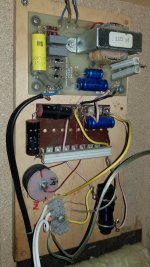 20250628_201902.jpg526.4 KB · Views: 18
20250628_201902.jpg526.4 KB · Views: 18 -
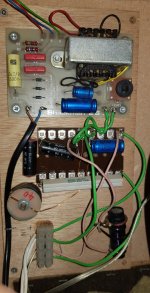 20250628_201926.jpg441.6 KB · Views: 16
20250628_201926.jpg441.6 KB · Views: 16 -
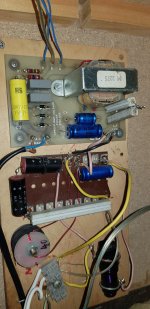 20250628_163148.jpg459.6 KB · Views: 15
20250628_163148.jpg459.6 KB · Views: 15 -
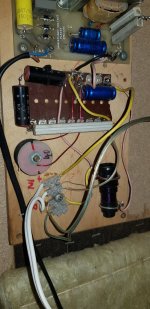 20250628_163153.jpg446.8 KB · Views: 15
20250628_163153.jpg446.8 KB · Views: 15 -
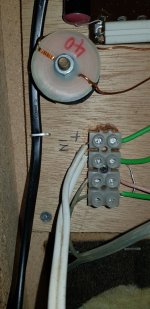 20250628_161956.jpg415 KB · Views: 12
20250628_161956.jpg415 KB · Views: 12 -
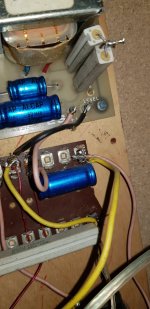 20250628_163520.jpg397.9 KB · Views: 15
20250628_163520.jpg397.9 KB · Views: 15 -
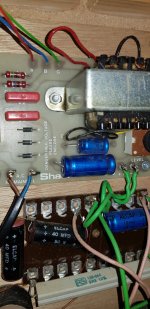 20250628_162309.jpg451.3 KB · Views: 15
20250628_162309.jpg451.3 KB · Views: 15 -
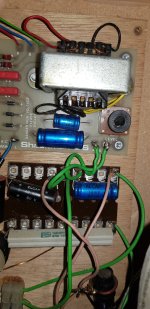 20250628_162001.jpg457.5 KB · Views: 14
20250628_162001.jpg457.5 KB · Views: 14 -
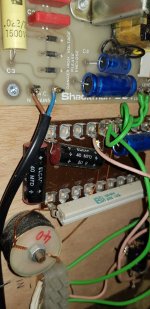 20250628_162340.jpg408.9 KB · Views: 14
20250628_162340.jpg408.9 KB · Views: 14 -
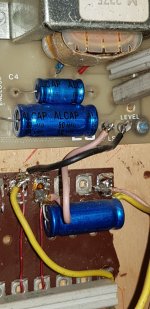 20250628_163320.jpg396.2 KB · Views: 15
20250628_163320.jpg396.2 KB · Views: 15 -
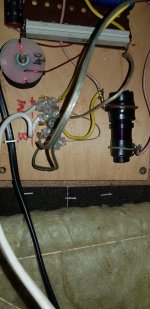 20250628_163352.jpg449.6 KB · Views: 14
20250628_163352.jpg449.6 KB · Views: 14 -
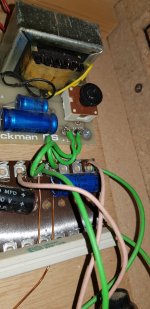 20250628_162408.jpg385.8 KB · Views: 17
20250628_162408.jpg385.8 KB · Views: 17
How to get started with these speakers. Totally new to me
Attachments
-
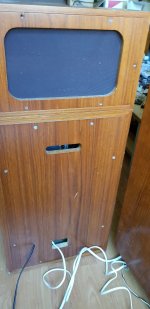 20250628_151842.jpg277.6 KB · Views: 19
20250628_151842.jpg277.6 KB · Views: 19 -
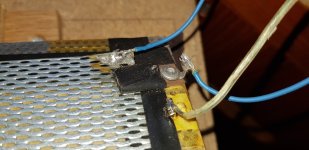 20250628_162736.jpg344 KB · Views: 21
20250628_162736.jpg344 KB · Views: 21 -
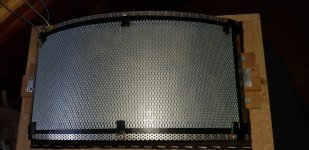 20250628_162744.jpg559.7 KB · Views: 20
20250628_162744.jpg559.7 KB · Views: 20 -
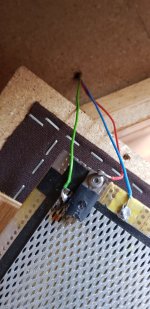 20250628_161337.jpg329.7 KB · Views: 21
20250628_161337.jpg329.7 KB · Views: 21 -
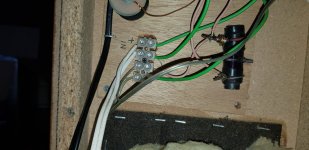 20250628_162212.jpg434.4 KB · Views: 22
20250628_162212.jpg434.4 KB · Views: 22 -
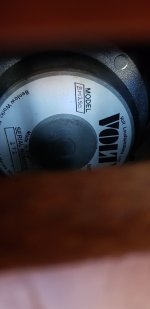 20250628_151910.jpg157.6 KB · Views: 22
20250628_151910.jpg157.6 KB · Views: 22 -
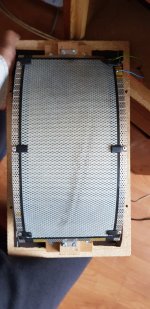 20250628_161345.jpg445.9 KB · Views: 24
20250628_161345.jpg445.9 KB · Views: 24 -
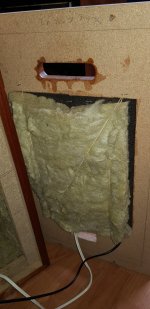 20250628_162236.jpg498.3 KB · Views: 20
20250628_162236.jpg498.3 KB · Views: 20 -
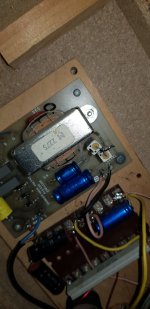 20250628_163200.jpg298.1 KB · Views: 21
20250628_163200.jpg298.1 KB · Views: 21 -
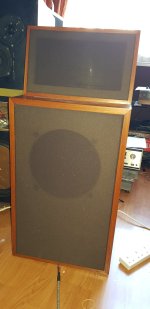 20250628_151822.jpg257.8 KB · Views: 19
20250628_151822.jpg257.8 KB · Views: 19 -
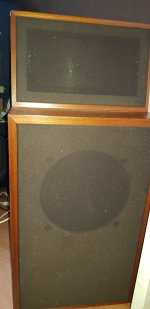 20250628_151827.jpg357.5 KB · Views: 20
20250628_151827.jpg357.5 KB · Views: 20
Last edited by a moderator:
Some guidance/definition from you is needed. Introduce us to where these came from. Who built them. Maybe I missed brand and model. Most importantly, you say 'how do I get started with these?' It begs the question, what are you wanting to do? Test them? Upgrade them? Are they not working? And I could go on. I appreciate the photos because at least now there is a visual of the product to some degree. What and why are still left hanging.
Why are you double-posting? If you didn't get any input on your first tread you could ponder why that might be and how you can better help someone help you.
These speakers - or at least the mid/tweeter part - seems to be some sort of DIY electrostatic speaker. Have you considered asking the builder/designer of them?
You then post pictures of seemingly random electronic bits. I'm guessing that's the driver for the electrostatic speaker, but there's no way for me to know exactly. Based on my understanding of how electrostatic speakers work, I would guess that some of those electronic bits are used to generate the voltage for the stator(s), i.e., the non-moving parts of the speaker. Usually this requires hundreds of volt if not a few kV. That alone would cause me to shy away from this unless I was pretty darn sure I knew what I was doing.
You should also have some bits that generate the voltage for the diaphragm. That could be as simple as a transformer, but it could also be more than that.
The woofer is easy. A quick search for "Volt BM250" indicates that it's a discontinued 10", 8 Ω woofer. You can find the specs here: https://loudspeakerdatabase.com/VOLT/B250.8
How to get started with these? Well... One approach would be to haul them off to the dump and buy a pair of KEF LS-50 Meta. That'd probably be my approach. But hey... That's me. 😉 Sorry. But there's just no way I'll trust that someone built these safely and that stator voltage will kill you without even asking. That said, you could probably make a 2-way or 3-way speaker by combining the woofer with other drivers.
Tom
These speakers - or at least the mid/tweeter part - seems to be some sort of DIY electrostatic speaker. Have you considered asking the builder/designer of them?
You then post pictures of seemingly random electronic bits. I'm guessing that's the driver for the electrostatic speaker, but there's no way for me to know exactly. Based on my understanding of how electrostatic speakers work, I would guess that some of those electronic bits are used to generate the voltage for the stator(s), i.e., the non-moving parts of the speaker. Usually this requires hundreds of volt if not a few kV. That alone would cause me to shy away from this unless I was pretty darn sure I knew what I was doing.
You should also have some bits that generate the voltage for the diaphragm. That could be as simple as a transformer, but it could also be more than that.
The woofer is easy. A quick search for "Volt BM250" indicates that it's a discontinued 10", 8 Ω woofer. You can find the specs here: https://loudspeakerdatabase.com/VOLT/B250.8
How to get started with these? Well... One approach would be to haul them off to the dump and buy a pair of KEF LS-50 Meta. That'd probably be my approach. But hey... That's me. 😉 Sorry. But there's just no way I'll trust that someone built these safely and that stator voltage will kill you without even asking. That said, you could probably make a 2-way or 3-way speaker by combining the woofer with other drivers.
Tom
I've never messed with a Shackman board or speaker, but looks like this to me from what I can see (it's not obvious what some of the parts are doing without seeing a full schematic or the other side of the board):

The line voltage connected bias supply has lethal voltage/current. Circuits like this are pretty uncommon now, but were obviously done in the old days. An isolation transformer would typically be used now.
The audio step-up ratio is typically in the 35-100 range for a midrange/tweeter, so voltage is high there and currents can be lethal.
These aren't extraordinary dangers if you are familiar with working on line powered electronics, tube amps, etc., but the risks are significantly different than an average passive speaker. If you don't understand the circuits and risks, you should get familiar with both before probing around or changing anything.
And as others have said, state plainly what kind of information you are looking for, if the speakers are working, if you're trying to change or repair them, etc.
The line voltage connected bias supply has lethal voltage/current. Circuits like this are pretty uncommon now, but were obviously done in the old days. An isolation transformer would typically be used now.
The audio step-up ratio is typically in the 35-100 range for a midrange/tweeter, so voltage is high there and currents can be lethal.
These aren't extraordinary dangers if you are familiar with working on line powered electronics, tube amps, etc., but the risks are significantly different than an average passive speaker. If you don't understand the circuits and risks, you should get familiar with both before probing around or changing anything.
And as others have said, state plainly what kind of information you are looking for, if the speakers are working, if you're trying to change or repair them, etc.
 Threads merged. Some posts which were no longer needed have been removed.
Threads merged. Some posts which were no longer needed have been removed.* Also please read carefully post #5 and #6, especially about direct mains/line connection and if in doubt, seek specific advice.
Last edited:
Oh, these may be the RTR Dynastatic DR1 speakers. Circular array of ES panels like those used in their ESR-6.
Extremely rare, good sound. Could be an early prototype version (the later ones look very different), or a copy.
Extremely rare, good sound. Could be an early prototype version (the later ones look very different), or a copy.
- Home
- Loudspeakers
- Planars & Exotics
- Dynastatic speakers arrived but do not want to do anything before consulting with you